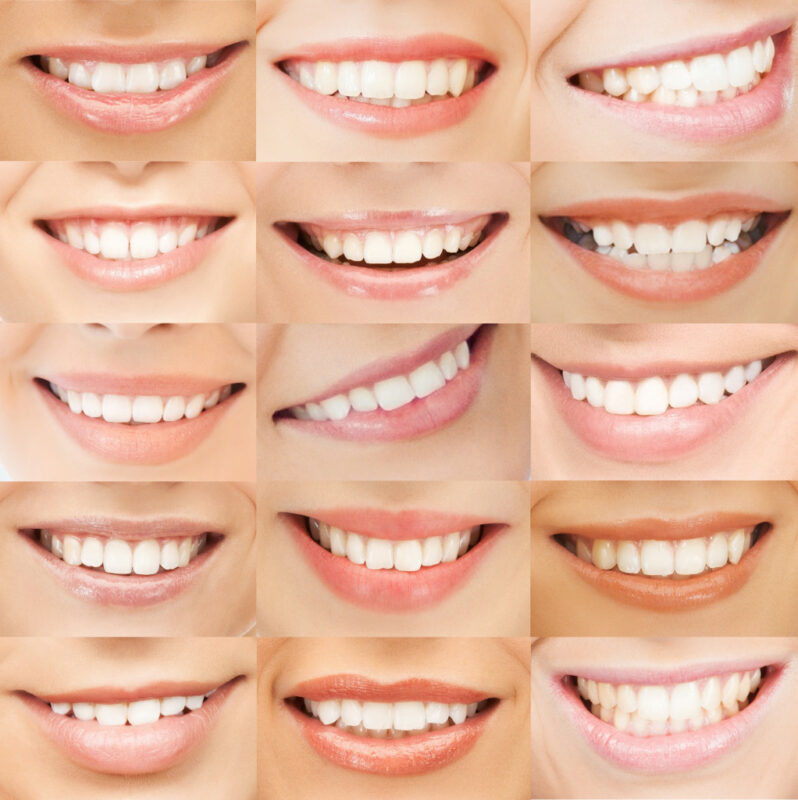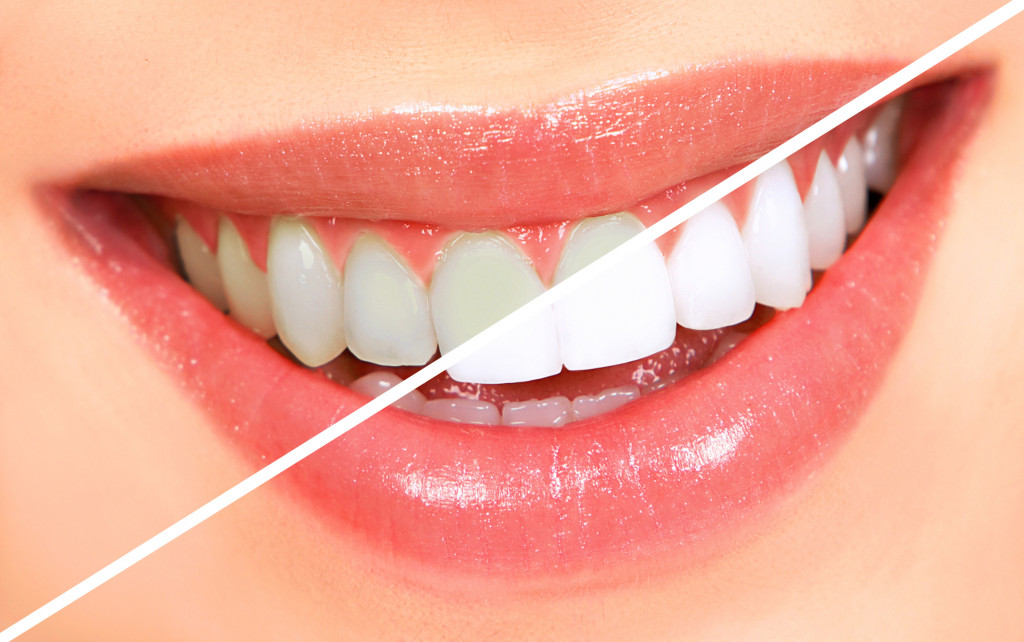You see the commercials, and the ads in magazines and your friends are always talking about it – tooth whitening. It seems like everyone is doing it, but what does tooth whitening entail? Is it worth the money? Is it safe? This article will give you the answers to all of your questions about tooth whitening so that you can make an informed decision.
How Does Tooth Whitening Work?
The active ingredient in most tooth whiteners is hydrogen peroxide or carbamide peroxide. As these substances break down, they release oxygen molecules that penetrate the enamel and dentin, bleaching stains along the way. This process usually takes anywhere from one to two weeks.
Whitening procedures are done in a dentist’s office and at home. In the office, the dentist will apply a bleaching agent to the teeth and then use a light or laser to activate the agent. At-home whitening kits usually contain a bleaching agent, tray, and light. The bleaching agent is applied to the tray, which is then inserted into the mouth. The light is used to activate the agent. After which, the tray is removed, and the process is repeated for a few days or weeks until desired results are achieved.
Are There Different Types of Tooth Whiteners?
Yes – there are two main types of tooth whiteners: those you use at home and those provided by your dentist. At-home whiteners generally come in one of three forms: whitening strips, paint-it-on gels, or tray-based systems that feature a mouthguard-like tray filled with a gel whitening solution. These are typically the most affordable option and can be purchased over the counter. However, they also take longer to see results and may not be as effective as professional whitening treatments.
Dentist-dispensed take-home systems generally use higher concentrations of bleaching agents than over-the-counter products. In addition, dentists can custom-make trays to fit your teeth precisely. As a result, these systems tend to be more expensive than their over-the-counter counterparts but also produce better results.
There is also a third type of tooth whitener – in-office bleaching – which as its name suggests, is performed by a dentist in their office. This type of bleaching generally uses the more robust bleaching agents available and can produce dramatic results in just one visit. However, it is also the most expensive option.
What Are The Side Effects Of Tooth Whitening?
The most popular result of tooth whitening is more sensitive teeth. Although this discomfort generally disappears a short time after the treatment, it can be irritating for some individuals.
In addition, some people may experience gum irritation or redness due to bleaching agents’ contact with gums during treatment. These side effects are usually minor and go away within a few days. However, if you experience severe side effects – such as blisters or sores in your mouth – you should discontinue treatment immediately and consult your dentist.
Benefits of Tooth Whitening
There are many benefits to tooth whitening. The most obvious benefit is that it can vastly improve the appearance of your teeth. Yellow, stained teeth can be bleached to a bright white, giving you a more youthful and attractive smile. In addition, tooth whitening can boost your self-confidence and make you feel better.
Tooth whitening is also a relatively affordable cosmetic procedure. While in-office bleaching treatments are the most expensive option, at-home whitening kits are much more affordable and can still produce great results. Finally, tooth whitening is a relatively simple and quick procedure. In-office bleaching treatments usually take less than an hour, and at-home whitening kits can be used in the comfort of your own home.
Who is not suitable for teeth whitening?
Not everyone can undergo teeth whitening treatment. Pregnant women and lactating mothers are not advised to go through the procedure. Moreover, children below 16 years of age should also not undergo treatment. People with restorations such as fillings, implants, crowns, and dental bridges are also not good candidates for teeth whitening.
If you have sensitive teeth, you may experience increased tooth sensitivity during and after treatment. In addition, people with gum disease or other oral health problems may not be good candidates for teeth whitening.
If you are considering teeth whitening, it is crucial to consult with your dentist before doing it. They will evaluate your situation and decide if you meet the requirements for the procedure. This will help ensure that you get the best possible results from treatment.
Tooth whitening is a popular cosmetic procedure that can greatly improve the appearance of your teeth. While it is generally safe, there are some risks and side effects associated with the treatment. Consult with your dentist first to see if you are a good candidate for the procedure.

